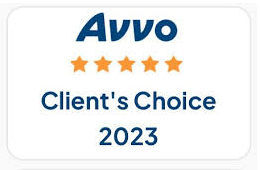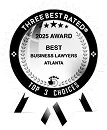- Home
- Practice Areas
- Litigation
- Adverse Possession
- Breach of Fiduciary Duty
- Business & Corporate Disputes
- Co-Counsel
- Commercial Litigation
- Construction Change Orders
- Construction Defects
- Contract Disputes
- Copyright & Trademark Infringement
- Evictions
- Failed Home Inspections
- General Civil Litigation
- Landlord Tenant Disputes
- Latent Defects
- Mechanic’s Liens
- Non-Compete Agreements
- Partition Actions
- Partnership Disputes
- Post-Judgment Collections
- Probate
- Quiet Title Actions
- Shareholder Agreement Disputes
- Business Law
- Asset Purchases
- Business & Corporate Disputes
- Business & Corporate Formation
- Business Outside In-House Counsel
- Business Sales & Purchases
- Buy-Sell Agreements
- Business Succession Planning
- Commercial Debt Collections
- Commercial Leases
- Commercial Litigation
- Commercial Real Estate
- Commercial Transactions
- Contract Disputes
- Contract Drafting
- Copyrights & Trademarks
- Corporate Bankruptcy
- Dissolution Actions
- Franchise & Dealership Law
- General Business Law
- General Partnerships
- Limited Liability Companies
- Limited Partnerships
- Mergers & Acquisitions
- Non-Compete Agreements
- Partnership Disputes
- Post-Judgment Collections
- Promissory Notes
- Shareholder Agreements
- Startups #GAStartupLawyer
- Sweepstakes & Prize Contests
- Real Estate Law
- Adverse Possession
- Commercial Leases
- Commercial Real Estate
- Construction Change Orders
- Construction Defects
- Contract Disputes
- Deed Drafting
- Evictions
- Failed Home Inspections
- HOA & COA
- Landlord Tenant Disputes
- Latent Defects
- Lease Purchases
- Mechanic’s Liens
- Partition Actions
- Promissory Notes
- Quiet Title Actions
- Seller Financing
- Short Sales
- Estate Planning
- Litigation
- Our Team
- Testimonials
- Blog
- Contact
- Contact Us
- Call Us: 678-882-0830
Atlanta, Georgia Non-Compete Agreement Attorneys
Thrift McLemore’s Atlanta business law attorneys help clients across Georgia understand, prepare, and enforce non-compete agreements to protect business interests and clarify rights.
Schedule a Consultation
Non-compete agreements often appear in job offers and employment contracts. Employers use them to protect the business, including customer relationships, trade secrets, and competitive advantages. The basic idea is simple: if you leave the company, you should not be able to immediately take what you learned and open a competing business right next door.
What is a Non-Compete Agreement?
A non-compete agreement, sometimes called a “covenant not to compete” or a “restrictive covenant,” is a contract between an employer and an employee. By signing it, the employee agrees not to compete with the business during their employment and for a specific period of time after leaving.
Most agreements try to stop employees from:
- Starting or joining a competing business
- Using or keeping customer lists
- Sharing confidential strategies, processes, or trade secrets
Example: Imagine a Georgia pest control company that creates a unique, all-natural pesticide. The company would not want an employee to leave, start their own service down the street, and use the same secret formula. A non-compete agreement helps prevent that.
Who Can Be Bound by a Non-Compete in Georgia?
Not every employee can be bound by a non-compete agreement. These agreements usually apply only to people in certain roles, such as:
- Sales employees who regularly interact with customers
- Managers or supervisors who make business decisions or direct staff
- Professionals or key employees with access to sensitive information
If an employee does not fit into one of these categories, a non-compete may not be enforceable.
What Makes a Non-Compete Reasonable in Georgia?
Courts in Georgia look at whether the restrictions are reasonable in three areas: time, location, and scope.
- Time: A period of two years or less is usually considered acceptable.
- Location: The restriction should be tied to where the company actually does business. A 20-mile radius might make sense. Covering the entire state of Georgia usually does not.
- Scope: The restriction must serve a real business purpose. Preventing someone from working in the same industry altogether is too broad. Preventing them from using a specific trade secret is much more likely to hold up.
Our Atlanta Business Attorneys are Here to Help
Whether you are a Georgia business owner who wants to put a non-compete in place or an employee who has been asked to sign one, it is important to know how the agreement works and what it could mean for your future.
At Thrift McLemore, our Atlanta business law attorneys work with both employers and employees. We review agreements, explain how Georgia law applies, and guide clients through the next steps. Call us today at 678-882-0830 to schedule a consultation.
Have a Question?
Have a legal question about non-compete agreement? Contact us directly at (678) 882-0830.
Relevant News & Insights
Georgia Written Agreements: Safeguard Your Interests Early
Can a verbal agreement hold up in Georgia? See why written contracts give Atlanta businesses stronger protection against disputes.
READ MORENew Requirements for Out-of-State Landlords with Georgia Rentals
If you’re an out-of-state landlord with rental property in Georgia, a new law may significantly affect how you manage your properties.
READ MOREGeorgia’s Right to Repair Act: What Homeowners & Contractors Need to Know
Understanding Georgia’s Right to Repair Act is essential for homeowners and contractors facing construction disputes.
READ MOREBusiness Divorce 101: When Georgia Business Partners Part Ways
Business partners don’t always agree. Learn how a business divorce works in Georgia and what steps protect your interests when partnerships end.
READ MOREUpdate on the FTC’s Ban on Non-Compete Agreements
In our recent post, “The FTC Banned Non-Competes: What This Means for You,” we explored the Federal Trade Commission’s (FTC) sweeping new rule banning non-compete agreements. This rule was set to shake up the workplace. Since then, there’s been a major development that might affect how this rule plays out. What happened? On June 28, […]
READ MOREHow DBAs Impact Your Business Identity
Most people have probably heard of PepsiCo and Alphabet Inc. However, these companies also operate under more widely known names: Pepsi and Google. So, how do these companies operate under different names at the same time? The answer is simple. They use a DBA. What is a DBA? The concept of “Doing Business As” (DBA), […]
READ MORE
© 2026 Thrift McLemore. All Rights Reserved.












